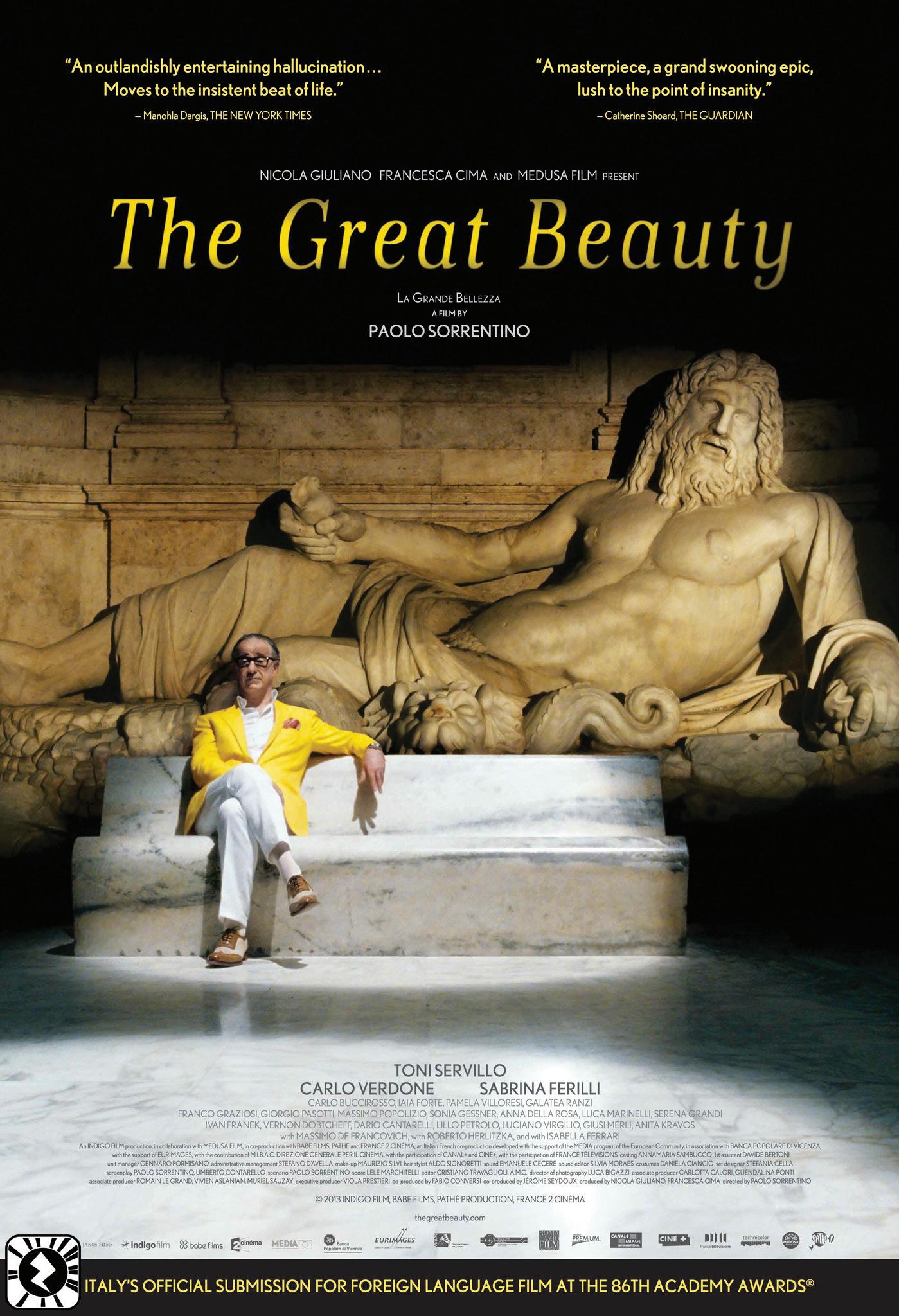
3 minute read
Grande bellezza
translation by Claudia Munafò text by Francesca Liantonio
Advertisement
The Great Beauty is a film directed by Paolo Sorrentino. It premiered at the 2013 Cannes Film Festival and won the Oscar as Best Foreign Language Film of the Year and other international awards. Diretto da Paolo Sorrentino, il film La Grande Bellezza - presentato in concorso al Festival di Cannes 2013 - ha vinto il Premio Oscar come miglior film straniero nel 2014 e numerosi altri premi internazionali.
| The Great Beauty movie poster.
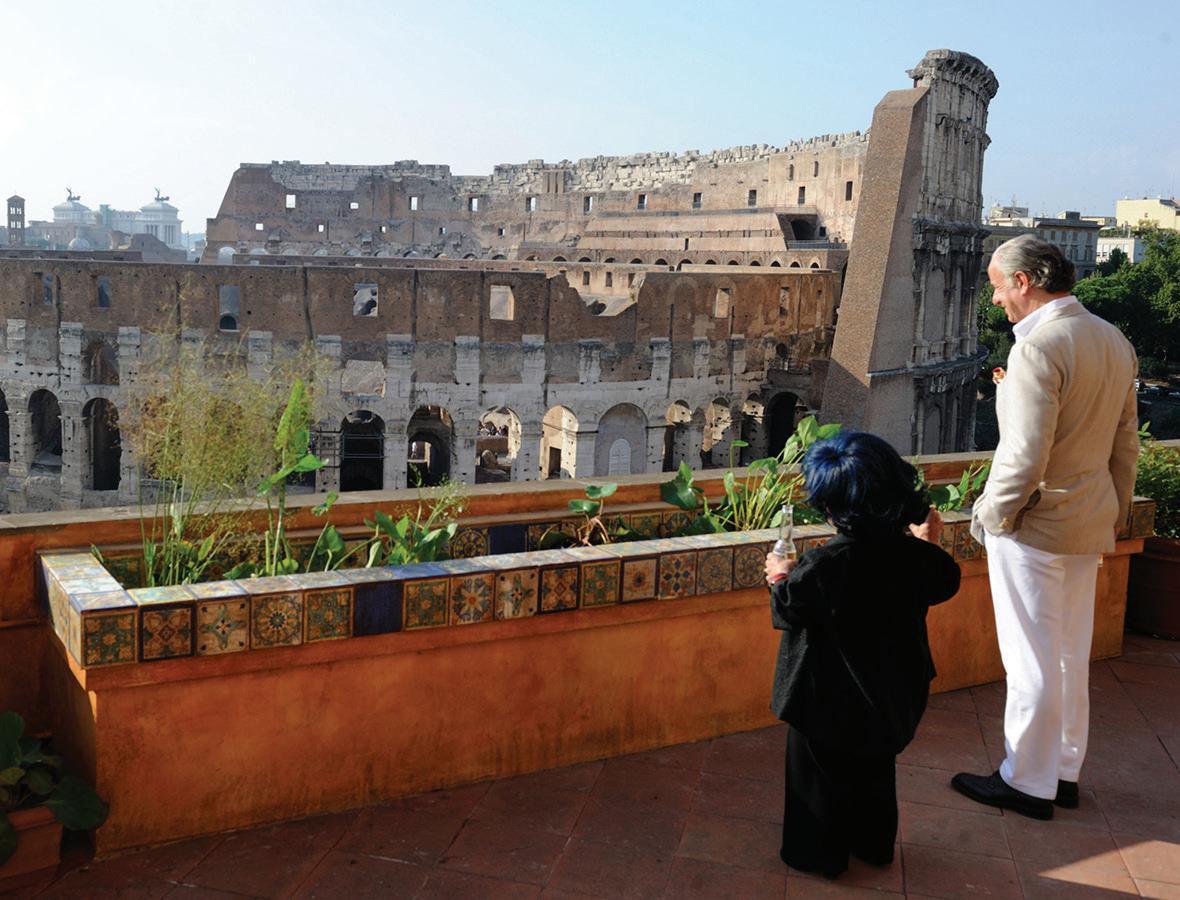
| Movie scene, the protagonist Jep Gambardella and Dadina, the dwarf director of the newspaper on which Jep writes.
“Travelling is very useful: it makes your imagination work, everything else is just disappointment and trouble. Our journey is entirely imaginary, which is its strength. […]”. The film opens with a quote from Céline’s “Journey to the End of the Night” but it is also the key to understand the whole meaning of travelling in the movie.
The travel is a metaphor of the life of the main character, Jep Gambardella. He is a journalist, a theatre critic, a know-it-all opinionist and he wrote a book that made him famous when he was young. He finds himself lost between the nostalgia of the past and the uncertainty of the future and he has fun with beautiful women at parties. For his sixty-fifth birthday, Jep throws an exaggerated baroque party and invites his friends and acquaintances with whom he likes to spend his nights on his terrace overlooking the Coliseum. These people are, mostly, silent poets, failed cocaine-addict actresses, cardinals who only care about food, heroin-addict entrepreneurs, party writers with a television career, local playwrights that never premiered, mysterious 50-year-old strippers and so on.
Jep Gambardella uses a carrots and sticks approach: his sharp tongue and intelligence and his disenchanted irony depict a decadent, stereotypical, gossipy and immoral roman society where rich middle-class people’s life turns around appearance and does not have a purpose.
testo italiano a p. 127
The director Paolo Sorrentino wants to show the great beauty and contradictions of Rome. The élite class people of the movie live inside the great beauty of Italian culture, which does not let them live the present and be productive since they believe that everything beautiful has already been done. All the characters of the movie don’t have a life. They are imprisoned in a city that does not see the rampant degradation of “conga lines”, which are beautiful because they don’t go anywhere. The world portrayed by Paolo Sorrentino is “dead and amoral”. Even the music and the editing of the movie are functional to the story. A dreamlike atmosphere of the streets of Rome alternates with the violent noise of night parties.
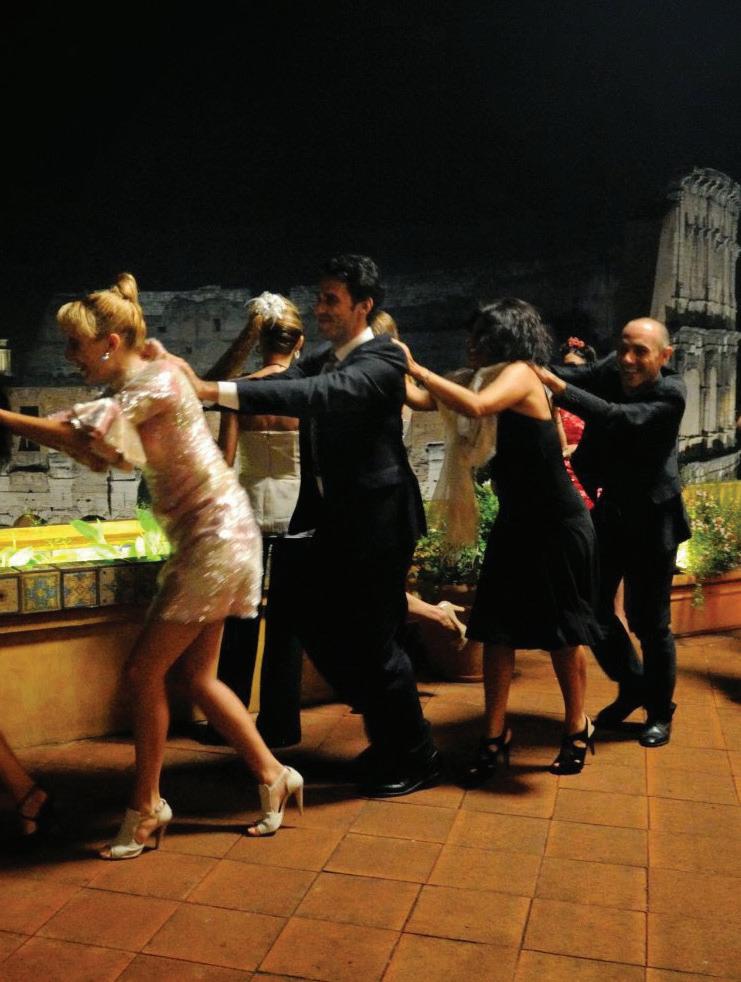
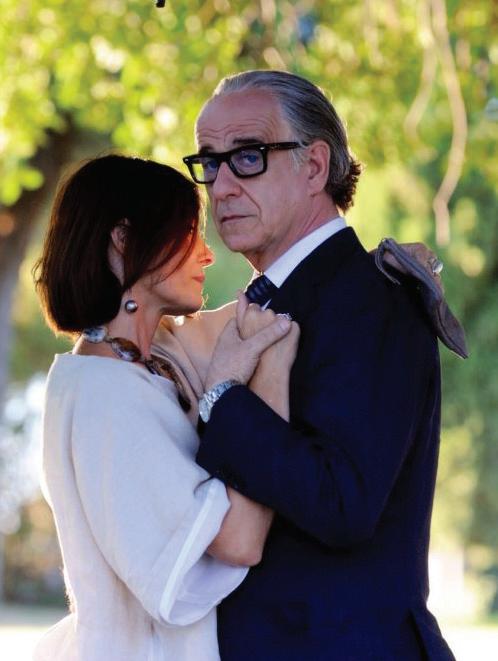
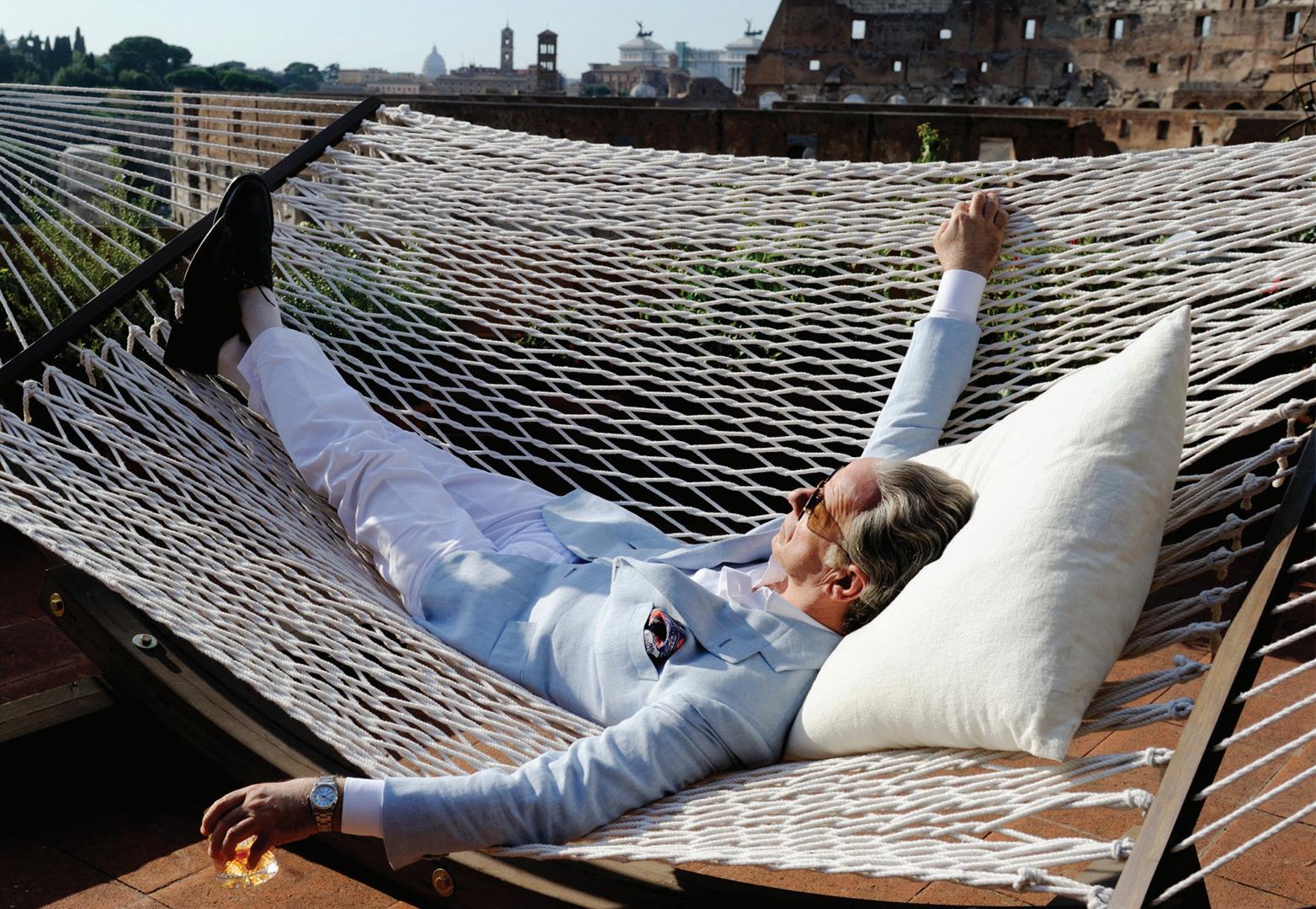
| Movie scenes.
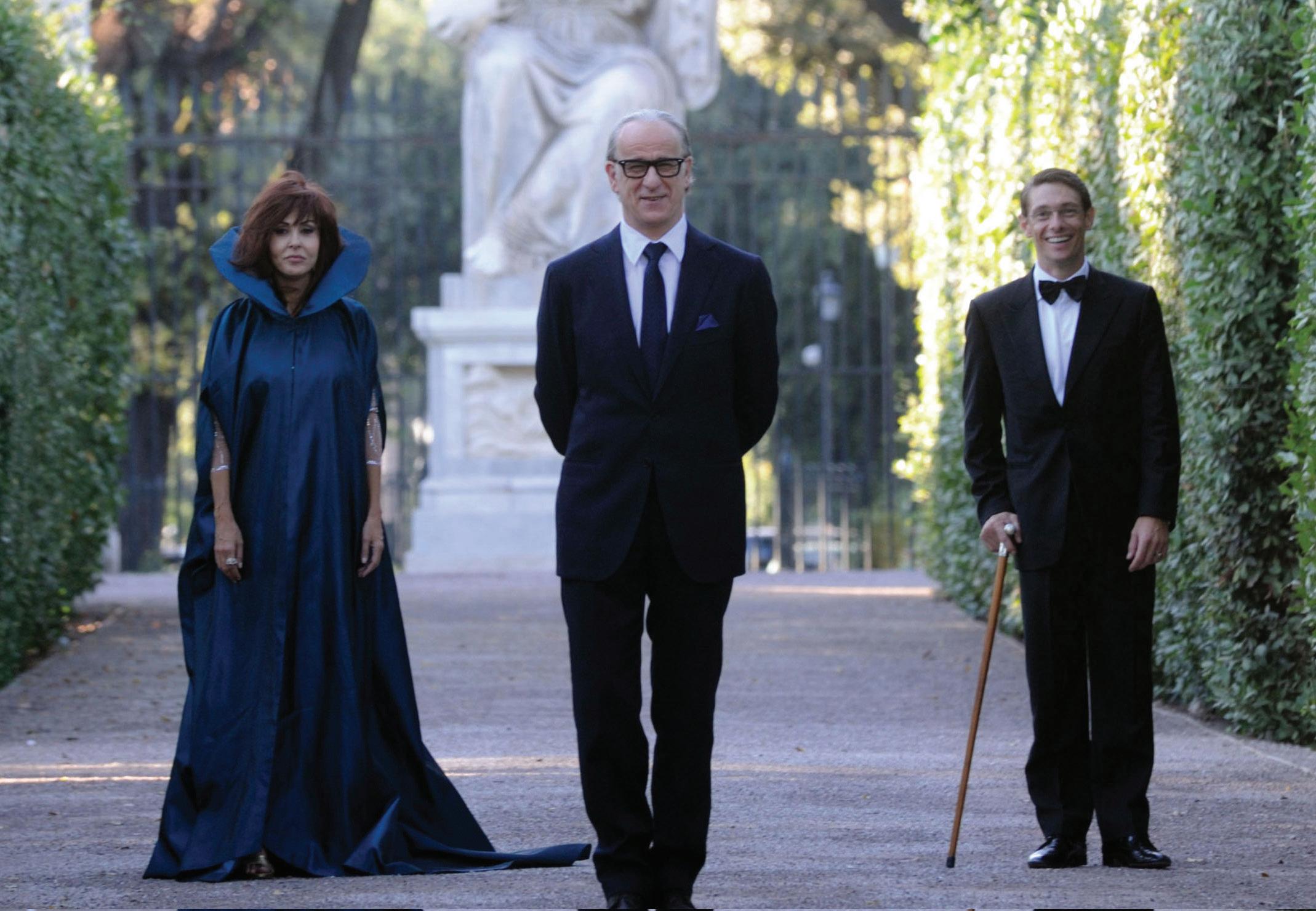
| Movie scene, Ramona, Jep, and “The Clerk” visit a secret garden of one of Rome’s ancient palaces.
The main character knows his world and he consciously accepts the consequences of his way of living. In the end he has an epiphany: the great beauty is the purity and candour of his unforgettable first love. In this sense, in the full version of the movie, when Jep asks the old director what cinema is to him, his answer is eye-opening. There is an explicit and dated reference to his first sensation of (visual) fascination: the lighting of the first traffic light in Milan, between piazza Duomo and via Torino.
“I think it was 12th April 1925. My father put me on his shoulders because there was a big crowd, can you imagine it? A crowd, a lot of people gathered together to see a traffic light. What a beauty! What a Great Beauty!”
Paolo Sorrentino managed to direct a movie that has a great poetic, cultural and political value because he focused the attention on the deprivation produced by the superego of a country stuck in the fear of making mistakes and surrounded by the splendour of ancient monuments. This is the reason why Sorrentino illuminates Raphael’s La Fornarina while the main character and a stripper are visiting a palace at night. The painting seems a ghost. So, Sorrentino hints at a painter (Raphael) who is famous for his unreachable perfection and conceives it as new form of impotence. Enjoy the movie.


